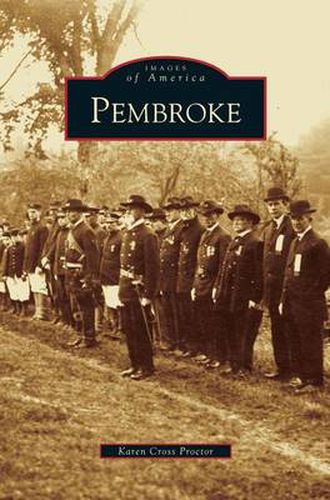Readings Newsletter
Become a Readings Member to make your shopping experience even easier.
Sign in or sign up for free!
You’re not far away from qualifying for FREE standard shipping within Australia
You’ve qualified for FREE standard shipping within Australia
The cart is loading…






This title is printed to order. This book may have been self-published. If so, we cannot guarantee the quality of the content. In the main most books will have gone through the editing process however some may not. We therefore suggest that you be aware of this before ordering this book. If in doubt check either the author or publisher’s details as we are unable to accept any returns unless they are faulty. Please contact us if you have any questions.
In the 1640s, Robert Barker and two companions canoed up the North River and turned onto one of the herring brooks, bringing Barker to the area where he eventually settled his family. Settlers from the coast soon began moving inland and small settlements sprang up. To incorporate the town of Pembroke in 1712, the First Church of Pembroke was established and a minister was settled. In the 18th and 19th centuries, Pembroke was defined by neighborhoods centering around eight district one-room schoolhouses. Each neighborhood had a distinct character, from the bustle of commerce in Bryantville, to the rural charm of Crookertown and Fosterville, to the shipbuilders, shoemakers, and iron founders in North Pembroke. The Bay Path, a main route from Boston to Plymouth, ran through the West Elm and High Street neighborhoods. Over the generations, these diverse and vibrant communities have helped to shape Pembroke into the town it is today.
$9.00 standard shipping within Australia
FREE standard shipping within Australia for orders over $100.00
Express & International shipping calculated at checkout
This title is printed to order. This book may have been self-published. If so, we cannot guarantee the quality of the content. In the main most books will have gone through the editing process however some may not. We therefore suggest that you be aware of this before ordering this book. If in doubt check either the author or publisher’s details as we are unable to accept any returns unless they are faulty. Please contact us if you have any questions.
In the 1640s, Robert Barker and two companions canoed up the North River and turned onto one of the herring brooks, bringing Barker to the area where he eventually settled his family. Settlers from the coast soon began moving inland and small settlements sprang up. To incorporate the town of Pembroke in 1712, the First Church of Pembroke was established and a minister was settled. In the 18th and 19th centuries, Pembroke was defined by neighborhoods centering around eight district one-room schoolhouses. Each neighborhood had a distinct character, from the bustle of commerce in Bryantville, to the rural charm of Crookertown and Fosterville, to the shipbuilders, shoemakers, and iron founders in North Pembroke. The Bay Path, a main route from Boston to Plymouth, ran through the West Elm and High Street neighborhoods. Over the generations, these diverse and vibrant communities have helped to shape Pembroke into the town it is today.